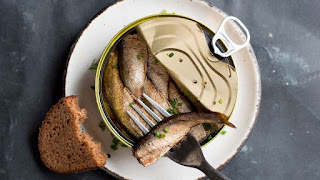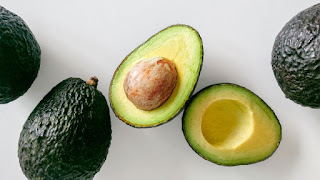According to a growing body of research, some foods have the nutritional profile to support maintaining mental clarity. According to data from the Centers for Disease Control and Prevention, cognitive decline affects 1 in 9 persons in the United States, which is higher than you may assume (CDC). Fortunately, research indicates that a number of daily behaviors, such as paying attention to what you put on your plate and in your supermarket cart, can reduce your risk for diseases like dementia.
The best nutritional strategy for enhancing brain health outcomes, according to Bonnie J. Kaplan, PhD, a research psychologist and coauthor of The Better Brain: Overcome Anxiety, Combat Depression, and Reduce ADHD and Stress with Nutrition, is to consume whole foods from a variety of food groups and much fewer ultra-processed ones.
Foods that have undergone extreme processing, usually packaged snacks and beverages appear to be a major factor in the risk for cognitive decline, but alarmingly, they make up a sizable portion of the typical Western diet. These foods and beverages also contain a lot of sodium, added sugars, and saturated fats. According to a study published in July 2022 in Neurology that followed 72,083 adults 55 or older for an average of 10 years, replacing just 10% of the ultra-processed foods in a person's diet with the same amount by weight of unprocessed or minimally processed foods was associated with a 19% reduction in dementia risk. Poor diets fail to deliver key nutrients that safeguard the brain, and they also flood the brain with dangerous substances, according to Salem, Oregon-based author Elizabeth Somer, RD.
Food is undoubtedly one of the most significant levers we can use to influence brain health. While some foods lack the nourishment required to support mental health, others contain substances that can assist keep your brain functioning properly. And some of the edibles that can help reset your brain's biological clock and elevate your mood may surprise you. Here is your cheat sheet for the meals (and one drink) you need to remember to include on your shopping list to support your noodle.
1. Strawberries
Could adding strawberries to your yogurt, cereal, or smoothies, or blending them up, help shield your brain from Alzheimer's? RUSH University researchers suggest that might be the case. They found that a substance called pelargonidin, which is abundant in strawberries (more so than other common berries), may be linked to fewer neurofibrillary tau tangles in the brain. Their study was published in July 2022 in the Journal of Alzheimer's Disease. This is significant because aberrant alterations in tau proteins are one of the main indicators of Alzheimer's disease in the brain. According to the study's authors, pelargonidin's anti-inflammatory qualities may lessen general neuroinflammation, prevent these tau proteins from folding improperly, and therefore enable improved movement of nutrients and other essential chemicals from one area to another.
Although we don't yet have enough data to determine the optimal daily intake of strawberries for brain health, a daily portion of one and a half cups of the juicy, sweet fruit is probably a good starting point.
We must also keep in mind that fruit, such as strawberries and other berries, can serve as a daily source of water for better hydration. According to prior study, allowing yourself to become dehydrated could result in an immediate impairment of mental abilities like working memory and executive function.
2. Eggs
You definitely don't want to scrimp on choline when it comes to our brains. According to Somer, the nerve neurotransmitter acetylcholine, which controls memory, and an unique class of fats called phospholipids are both found in cell membranes. In actuality, acetylcholine underproduction is a hallmark of Alzheimer's disease, she continues. A higher dietary intake of phosphatidylcholine, a type of choline, may reduce the risk of dementia and improve cognitive function, according to research results published in the American Journal of Clinical Nutrition. Additionally, you should ensure that you consume enough choline if you're expecting a child because research suggests that it may help with the growth of the baby's brain.
Somer emphasizes that while the body can create choline with the aid of other nutrients like folic acid and vitamin B12, there are occasions when this production is insufficient to support proper brain function. Eggs can be a great help in the situation. Eggs, more specifically the yolks, are just about the second-richest source of choline in grocery stores, after beef liver, according to the National Institutes of Health (NIH). A single egg provides around 30% of the recommended daily amount of choline, which is good for the brain. Eggs were the main source of phosphatidylcholine in the diets of research participants, as noted above. And a research published in the journal Nutrients found that those who frequently eat eggs often ingest twice as much choline as persons who don't.
3. Cans of sardines
One of the greatest long-chain omega-3 fatty acid sources in the grocery store can be found in these affordable canned fish, which, according to some studies, may help delay age-related cognitive decline. Sardines and salmon are examples of fatty fish, and a moderate intake of omega-3 fatty acids from marine sources was linked to a lower prevalence of depressive symptoms, according to a study published in the journal Nutrients including 6,587 people. Additionally, those who experience these "skull crushers" have been linked by a study published in July 2021 in The BMJ to higher omega-3 intake to fewer, less severe headaches.
Dr. Kaplan refers to lipids in the gray matter when he states, "Basically, we are fat heads, as our brains are 60% fat. Therefore, good fats, such as omega-3s, are necessary for the cell membranes in our brains to operate at their best. She continues by saying that changing the ratio of these fats in our meals can assist reduce inflammation in the brain and make it simpler to maintain higher cognitive performance by ingesting more omega-3 fats and fewer omega-6 ones from highly processed foods. The best recommendation, according to Kaplan, is to aim for two servings of fatty fish per week. "We don't yet know the ideal amount of seafood to eat for brain health," Kaplan says.
Vitamin D is also abundant in canned sardines. The U.S. Department of Agriculture's nutrition data shows that a 3.5-ounce (100-gram) serving offers 193 IU, or 24 percent of the recommended daily intake (USDA). Even after taking into consideration numerous dementia risk factors, researchers discovered that older people with the highest levels of vitamin D consumption from food were less likely to get dementia than those with the lowest vitamin D intake from food. In September 2020, Alzheimer's & Dementia released the findings. Although vitamin D can be seen as crucial along with all of the other nutrients, Kaplan adds that we can't expect to achieve optimal brain function with just one vitamin. "Never will being deficient in any nutrient, including vitamin D, be healthy."
Few Americans consume enough vitamin D from food or sunlight, so increasing your intake of canned sardines in your diet can be a wise choice. Try the tiny swimmers in sandwiches, frittatas, and pasta recipes.
4. Black Lentils
It's possible that not all lentils are made equal when it comes to safeguarding our brains. According to a study that appeared in the September 2021 issue of Neurology, persons who had at least half a portion of foods high in plant-based flavonoids daily had a 20% lower risk of cognitive impairment than those who consumed less of these foods. Anthocyanins, which are typically found in blackberries, blueberries, cherries, and black lentils, were also found to have some of the highest protective benefits against cognitive decline among individual flavonoids, according to the results, which were based on data from 49,493 women and 27,842 men. Somer claims that these substances have antioxidant and anti-inflammatory properties that can improve brain function and delay the onset of cognitive decline.
Black lentils are also a great source of nutritional fiber, much like all legumes. According to the U.S. Food and Drug Administration (FDA), adults on a 2,000-calorie diet need 28 grams of fiber per day, which the majority of people do not consume. This deficiency may be endangering long-term brain function. Among persons 40 to 64 years old, a high-fiber diet may lower the risk of developing severe dementia, according to a study that was published in February 2022 in Nutritional Neuroscience. For soluble fiber, which is present in lentils, the connection was very clear.
Although the mechanisms are still unknown, they might entail interactions between the gut and the brain: The microbiome, or collection of beneficial microbes in the human gastrointestinal tract, can be regulated by fiber, which may have an effect on inflammation in the brain.
Black lentils are a fantastic addition to salads and soups since they keep their shape nicely when cooked and have a less earthy flavor than other lentils.
5. Avocado
Maybe an avocado a day will help you avoid the brain doctor. A study published in the journal Nutrients demonstrated that eating avocados regularly for six months significantly improved people's working memory and problem-solving effectiveness. The researchers ascribed the advantage to the creamy fruit's high quantities of bioavailable lutein, an antioxidant that is integrated into our brains after consumption. Kaplan explains that "phytonutrients like lutein are plant-based nutrients we derive from whole foods that help our mitochondria produce sufficient amounts of ATP," adding that "every cell in our body, including in the brain, has mitochondria, which function to produce ATP, the energy molecule, and one of the main functions of ATP is to tamp down excessive inflammation."
Avocado is not just a one-hit wonder; it is also a source of monounsaturated oil, folate, and fiber, all of which can slow down the rate at which your brain ages.
Of course, you'll need to be aware of its calories if you want to add more avocado to your toast and salads as a tasty approach to assist in slowing down the aging process in your brain - roughly 322 in one fruit, according to the USDA. So, in order to give your brain a boost, you should preferably substitute some of the calories from less healthy foods with those from avocado.
6. Spinach
All veggies are healthy, but Popeye's favorite green is one of the best for keeping your mind sharp and protecting it. Why? A study published in 2020 in the Journal of Nutrition indicated that spinach is notably high in carotenoid antioxidants like beta-carotene and lutein, which can reduce the likelihood of moderate or poor cognitive performance in women as they age. A study in the journal Frontiers of Aging Neuroscience indicated that middle-aged subjects with greater levels of lutein had brain responses that were more comparable to those of younger people. However, don't imagine that consuming large amounts of carotenoids on occasion will keep your brain in peak condition. Consumption of these plant chemicals found in bright vegetables, Including leafy greens, bell peppers, sweet potatoes, and tomatoes requires a long period of sustained high levels.
The ability of these anti-oxidant carotenoids to protect brain cells from oxidative damage, which accelerates aging, may contribute to the mechanism. According to Kaplan, "a higher consumption of carotenoids is also an indication that a person is consuming an overall whole-foods, nutrient-dense diet, which is critical to support brain function." Carotenoids, which are the yellow, orange, and red pigments found in many fruits and vegetables, are the reason why we are advised to eat a rainbow of colors.
Beyond salads, spinach may also be blended into pestos, added generously to frittatas, stirred into stews, curries, and soups at the end of cooking, and blended into smoothies (you won't even taste it with other components like fruit).










0 Comments